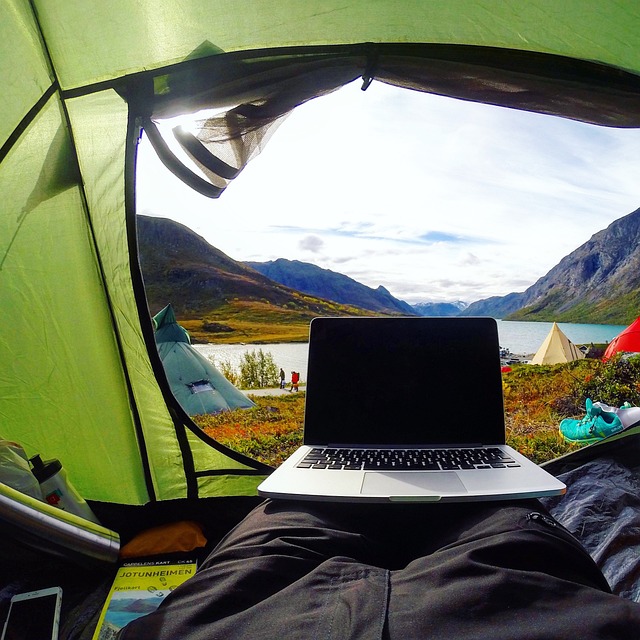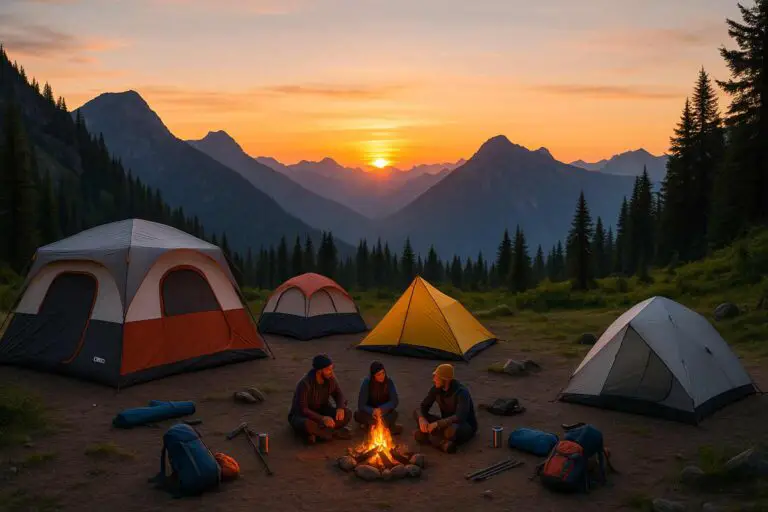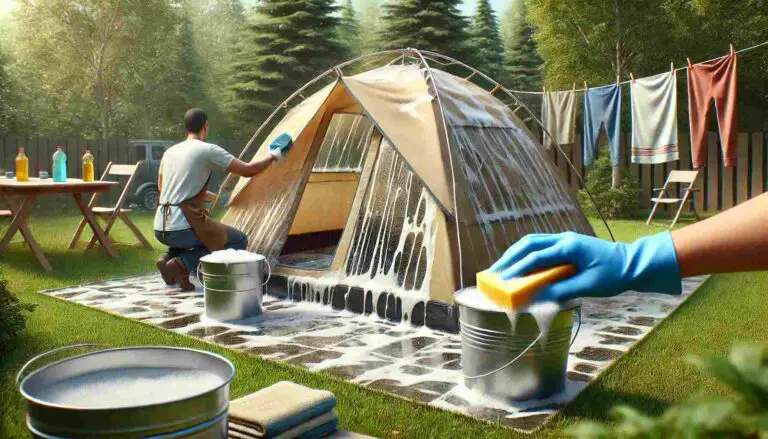Camping is a fun and exciting outdoor activity that allows people to connect with nature and enjoy the great outdoors. One of the most important aspects of camping is having the right gear, and a good camping tent is essential. There are various types of camping tents available in the market, each with its own set of advantages and disadvantages. In this article, I will discuss the pros and cons of different types of camping tents, including dome tents, cabin tents, backpacking tents, and tunnel tents. I will also provide some factors to consider when choosing the right tent for your needs.
Let’s dive right in!
Pros and cons of different types of camping tents
1. Dome tents
Dome tents are one of the most popular and common types of camping tents. They are usually designed with two or three poles that crisscross to form a dome shape.
Pros:
- Easy to set up: Dome tents are relatively easy to set up, and you can do it within minutes with practice.
- Good ventilation: Dome tents typically come with mesh panels that provide good airflow and ventilation, keeping you cool and comfortable in hot weather.
- Lightweight: They are typically lightweight and easy to carry, making them a great option for backpacking or hiking trips.
- Affordable: Dome tents are usually less expensive than other types of tents, making them a great option for those on a budget.
Cons:
- Not ideal for extreme weather conditions: Dome tents are not suitable for harsh weather conditions like heavy rain or strong winds, as they are not very stable.
- Limited headroom: The sloping sides of a dome tent can limit headroom, which can be uncomfortable for taller individuals.
- Not as spacious as other types: Dome tents are usually smaller in size and may not provide ample space for families or larger groups.
2. Cabin tents
Cabin tents are the largest and most spacious types of camping tents, with vertical walls that provide ample headroom and floor space.
Pros:
- Spacious: Cabin tents offer plenty of space for sleeping and storage, making them ideal for family camping trips.
- Tall enough to stand up in: With their vertical walls, cabin tents provide ample headroom, allowing you to stand up and move around comfortably.
- Ideal for family camping: Cabin tents are great for extended camping trips with families or larger groups.
- Great for extended camping trips: They offer enough space to store gear, making them ideal for longer camping trips.
Cons:
- Heavy and bulky: Cabin tents are usually heavier and bulkier than other types of tents, making them difficult to transport and set up.
- Difficult to set up: Due to their size and complexity, cabin tents can be challenging to set up, requiring more than one person to do so.
- Poor ventilation: Cabin tents are not well-ventilated, and they can get hot and stuffy in warmer weather.
- Not ideal for extreme weather conditions: They are not designed for harsh weather conditions and may not be able to withstand heavy rain or strong winds.
3. Backpacking tents
Backpacking tents are designed to be lightweight and portable, making them a great option for backpacking or hiking trips.
Pros:
- Lightweight and compact: Backpacking tents are usually lightweight and easy to carry, making them ideal for backpacking or hiking trips.
- Easy to carry: They are designed to be portable, and they can be easily carried in a backpack.
- Ideal for solo camping: Backpacking tents are great for solo camping trips.
- Good ventilation: They typically come with mesh panels that provide good airflow and ventilation, keeping you cool and comfortable in hot weather.
Cons:
- Limited space: Backpacking tents are usually smaller in size, and they may not provide ample space for families or larger groups.
- Not as durable as other types: They are made from lightweight materials and may not be as durable as other types of tents.
- Can be expensive: Backpacking tents can be costly due to their lightweight materials and advanced design.
4. Tunnel tents
Tunnel tents are designed with a series of hoops or poles that form a tunnel shape.
Pros:
- Lightweight: They are usually lightweight and easy to carry, making them a great option for backpacking or hiking trips.
- Ideal for windy conditions: Their tunnel design provides stability and makes them ideal for windy weather conditions.
- Spacious: Tunnel tents offer plenty of space for sleeping and storage
Cons:
- Not as stable as other types: While tunnel tents are designed to be stable in windy conditions, they may be less stable than other types of tents in extreme weather conditions like heavy rain or snow.
- Limited headroom: The tunnel shape can limit headroom, which can be uncomfortable for taller individuals.
- Can be difficult to set up: The tunnel shape can make them more challenging to set up than dome tents, especially for beginners.
Factors to consider when choosing a camping tent
When choosing a camping tent, there are several factors to consider, including:
- Size and capacity. Consider the number of people who will be using the tent and the amount of gear you need to store. Ensure that the tent’s capacity meets your needs.
- Seasonality and weather resistance: Choose a tent that is suitable for the type of weather conditions you will be camping in. Look for a tent that is waterproof and windproof, and has adequate ventilation.
- Weight and portability. Consider the weight and size of the tent, especially if you plan on backpacking or hiking. A lightweight and compact tent is ideal for these activities.
- Ease of setup and takedown. Choose a tent that is easy to set up and takedown. This will save you time and energy, especially after a long day of camping.
- Ventilation and breathability. Choose a tent with good ventilation and breathability, especially if you are camping in warm weather. Look for a tent with mesh panels and windows that provide adequate airflow.
- Durability and materials. Choose a tent made from durable materials that can withstand the wear and tear of camping. Look for a tent made from high-quality materials like nylon or polyester.
- Price and budget. Consider your budget when choosing a tent. There are a variety of tents available at different price points, so choose one that fits your budget while still meeting your needs.
Conclusion
Choosing the right camping tent is crucial for a comfortable and enjoyable camping experience. When deciding on a tent, it’s essential to consider factors such as size, seasonality, weight, ease of setup, ventilation, durability, and budget. Each type of camping tent has its own set of pros and cons, and it’s up to you to choose the one that meets your specific needs and requirements.
Whether you’re planning a solo backpacking trip or a family camping vacation, there is a camping tent out there that will suit your needs. By considering the factors mentioned in this article, you can make an informed decision and choose a camping tent that will provide a comfortable and enjoyable outdoor experience.







